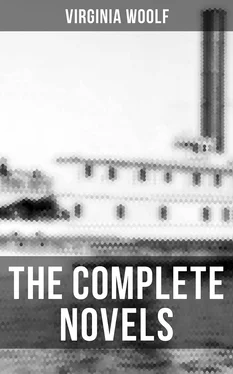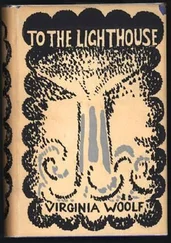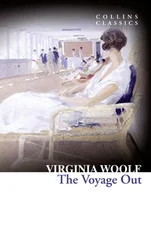“My Aunt,” Hirst interrupted, “spends her life in East Lambeth among the degraded poor. I only quoted my Aunt because she is inclined to persecute people she calls ‘intellectual,’ which is what I suspect Miss Vinrace of doing. It’s all the fashion now. If you’re clever it’s always taken for granted that you’re completely without sympathy, understanding, affection—all the things that really matter. Oh, you Christians! You’re the most conceited, patronising, hypocritical set of old humbugs in the kingdom! Of course,” he continued, “I’m the first to allow your country gentlemen great merits. For one thing, they’re probably quite frank about their passions, which we are not. My father, who is a clergyman in Norfolk, says that there is hardly a squire in the country who does not—”
“But about Gibbon?” Hewet interrupted. The look of nervous tension which had come over every face was relaxed by the interruption.
“You find him monotonous, I suppose. But you know—” He opened the book, and began searching for passages to read aloud, and in a little time he found a good one which he considered suitable. But there was nothing in the world that bored Ridley more than being read aloud to, and he was besides scrupulously fastidious as to the dress and behaviour of ladies. In the space of fifteen minutes he had decided against Mrs. Flushing on the ground that her orange plume did not suit her complexion, that she spoke too loud, that she crossed her legs, and finally, when he saw her accept a cigarette that Hewet offered her, he jumped up, exclaiming something about “bar parlours,” and left them. Mrs. Flushing was evidently relieved by his departure. She puffed her cigarette, stuck her legs out, and examined Helen closely as to the character and reputation of their common friend Mrs. Raymond Parry. By a series of little strategems she drove her to define Mrs. Parry as somewhat elderly, by no means beautiful, very much made up—an insolent old harridan, in short, whose parties were amusing because one met odd people; but Helen herself always pitied poor Mr. Parry, who was understood to be shut up downstairs with cases full of gems, while his wife enjoyed herself in the drawing-room. “Not that I believe what people say against her—although she hints, of course—” Upon which Mrs. Flushing cried out with delight:
“She’s my first cousin! Go on—go on!”
When Mrs. Flushing rose to go she was obviously delighted with her new acquaintances. She made three or four different plans for meeting or going on an expedition, or showing Helen the things they had bought, on her way to the carriage. She included them all in a vague but magnificent invitation.
As Helen returned to the garden again, Ridley’s words of warning came into her head, and she hesitated a moment and looked at Rachel sitting between Hirst and Hewet. But she could draw no conclusions, for Hewet was still reading Gibbon aloud, and Rachel, for all the expression she had, might have been a shell, and his words water rubbing against her ears, as water rubs a shell on the edge of a rock.
Hewet’s voice was very pleasant. When he reached the end of the period Hewet stopped, and no one volunteered any criticism.
“I do adore the aristocracy!” Hirst exclaimed after a moment’s pause. “They’re so amazingly unscrupulous. None of us would dare to behave as that woman behaves.”
“What I like about them,” said Helen as she sat down, “is that they’re so well put together. Naked, Mrs. Flushing would be superb. Dressed as she dresses, it’s absurd, of course.”
“Yes,” said Hirst. A shade of depression crossed his face. “I’ve never weighed more than ten stone in my life,” he said, “which is ridiculous, considering my height, and I’ve actually gone down in weight since we came here. I daresay that accounts for the rheumatism.” Again he jerked his wrist back sharply, so that Helen might hear the grinding of the chalk stones. She could not help smiling.
“It’s no laughing matter for me, I assure you,” he protested. “My mother’s a chronic invalid, and I’m always expecting to be told that I’ve got heart disease myself. Rheumatism always goes to the heart in the end.”
“For goodness’ sake, Hirst,” Hewet protested; “one might think you were an old cripple of eighty. If it comes to that, I had an aunt who died of cancer myself, but I put a bold face on it—” He rose and began tilting his chair backwards and forwards on its hind legs. “Is any one here inclined for a walk?” he said. “There’s a magnificent walk, up behind the house. You come out on to a cliff and look right down into the sea. The rocks are all red; you can see them through the water. The other day I saw a sight that fairly took my breath away—about twenty jelly-fish, semi-transparent, pink, with long streamers, floating on the top of the waves.”
“Sure they weren’t mermaids?” said Hirst. “It’s much too hot to climb uphill.” He looked at Helen, who showed no signs of moving.
“Yes, it’s too hot,” Helen decided.
There was a short silence.
“I’d like to come,” said Rachel.
“But she might have said that anyhow,” Helen thought to herself as Hewet and Rachel went away together, and Helen was left alone with St. John, to St. John’s obvious satisfaction.
He may have been satisfied, but his usual difficulty in deciding that one subject was more deserving of notice than another prevented him from speaking for some time. He sat staring intently at the head of a dead match, while Helen considered—so it seemed from the expression of her eyes—something not closely connected with the present moment.
At last St. John exclaimed, “Damn! Damn everything! Damn everybody!” he added. “At Cambridge there are people to talk to.”
“At Cambridge there are people to talk to,” Helen echoed him, rhythmically and absent-mindedly. Then she woke up. “By the way, have you settled what you’re going to do—is it to be Cambridge or the Bar?”
He pursed his lips, but made no immediate answer, for Helen was still slightly inattentive. She had been thinking about Rachel and which of the two young men she was likely to fall in love with, and now sitting opposite to Hirst she thought, “He’s ugly. It’s a pity they’re so ugly.”
She did not include Hewet in this criticism; she was thinking of the clever, honest, interesting young men she knew, of whom Hirst was a good example, and wondering whether it was necessary that thought and scholarship should thus maltreat their bodies, and should thus elevate their minds to a very high tower from which the human race appeared to them like rats and mice squirming on the flat.
“And the future?” she reflected, vaguely envisaging a race of men becoming more and more like Hirst, and a race of women becoming more and more like Rachel. “Oh no,” she concluded, glancing at him, “one wouldn’t marry you. Well, then, the future of the race is in the hands of Susan and Arthur; no—that’s dreadful. Of farm labourers; no—not of the English at all, but of Russians and Chinese.” This train of thought did not satisfy her, and was interrupted by St. John, who began again:
“I wish you knew Bennett. He’s the greatest man in the world.”
“Bennett?” she enquired. Becoming more at ease, St. John dropped the concentrated abruptness of his manner, and explained that Bennett was a man who lived in an old windmill six miles out of Cambridge. He lived the perfect life, according to St. John, very lonely, very simple, caring only for the truth of things, always ready to talk, and extraordinarily modest, though his mind was of the greatest.
“Don’t you think,” said St. John, when he had done describing him, “that kind of thing makes this kind of thing rather flimsy? Did you notice at tea how poor old Hewet had to change the conversation? How they were all ready to pounce upon me because they thought I was going to say something improper? It wasn’t anything, really. If Bennett had been there he’d have said exactly what he meant to say, or he’d have got up and gone. But there’s something rather bad for the character in that—I mean if one hasn’t got Bennett’s character. It’s inclined to make one bitter. Should you say that I was bitter?”
Читать дальше












